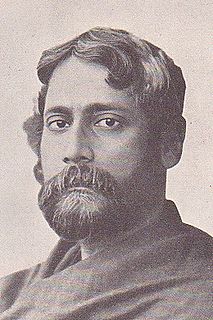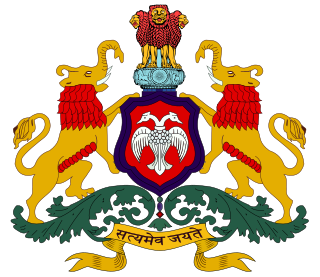 W
WAmar Asha is a Gujarati poem by Manilal Dwivedi. It was his last poetic work – published posthumously in the 1898 issue of his own magazine, Sudarshan. Described as Manilal's most important work and cited as one of the most popular poems in Gujarati literature, Amar Asha has been studied and interpreted by several writers since its publication.
 W
WBahuk is a Gujarati long narrative poem by Chinu Modi. The poem is composed both in metrical and non-metrical verse and centres on Nala, a character from the Mahabharata who metamorphosed into Bahuka. It is an acclaimed poem of Gujarati literature written in Sanskrit-styled figurative language. The poem was selected for the Ushnas Prize (1982–83) by the Gujarati Sahitya Parishad.
 W
WThe Banjaranama is a famous satirical Urdu poem, written by the eighteenth-century Indian poet Nazeer Akbarabadi. The poem's essential message is that pride in worldly success is foolish, because human circumstances can change in a flash, material wealth and splendor is always transient, and death is the only certainty for all men. The poem quickly captured the popular imagination, and achieved fame in the Indian subcontinent that has lasted for over two centuries. Critics have observed that, despite the deliberate simplicity of its language, the poem's idioms and imagery were dazzling in their span, and portrayed lives of wealth and power as ultimately subject to a nomad's whims. The poem continues to be hailed as distilling "the teachings of thousands of years into one summary form."
 W
WThe Basava Purana is a 13th-century Telugu epic poem. It was written by Palkuriki Somanatha. It is a sacred text of Lingayat. The epic poem narrates the life story of philosopher and social reformer Basava, the founder of Lingayat. He is also known by several other names such as Basavanna, Basaweshwara, Basavesha, and Basavaraja. It is also an anthology of several Lingayat saints and their philosophies. In contrast to campu style, Somanatha adopted the desi (native) style and composed the purana in dwipada (couplets), a meter popular in oral tradition and closely related to folk songs.
 W
WJodi Tor Dak Shune Keu Na Ase Tobe Ekla Cholo Re, commonly known as Ekla Cholo Re, is a Bengali patriotic song written by Rabindranath Tagore in 1905.
 W
WThe Gambler's lament is one of the hymns of the Rigveda which do not have any direct cultic or religious context. It is found in the late Tenth Book, where most of such hymns on "miscellaneous" topics are found, suggesting a date of compilation corresponding to the early Indian Iron Age. The hymn was composed by either Kanvasha Ailusha or Aksha Maujavant.
 W
W"In The Bazaars of Hyderabad" is an early 20th-century English poem written by Sarojini Naidu (1879–1949), an Indian independence activist and a poet from Hyderabad, India. The poem is written in five stanzas, was first published in the year 1912 from earlier days.
 W
WJaya Bharata Jananiya Tanujate is a Kannada poem, which was composed by the Indian national poet Kuvempu. The poem was officially declared the state song of the Indian state of Karnataka on 6 January 2004.
 W
W"Jete Nahi Dibo" is a Bengali poem written by Rabindranath Tagore. The poem is included in the collection Sonar Tori (IPA:). The poem consists of 76 lines. The English translation of the poem is curtailed into 16 lines.
 W
WKali the Mother is a poem written by Hindu monk Swami Vivekananda. Vivekananda wrote the poem on 24 September 1898 when he was staying in Kashmir, on a houseboat, on Dal Lake in Srinagar. In this poem he worshipped goddess Kali.
 W
WNachuk Tahate Shyama,, is a Bengali language poem written by Vivekananda. The poem was originally published in two issues in Vivekodayam in 1904. The poem was later included in the second volume of The Complete Works of Swami Vivekananda. The long poem relates to one’s surrender to the Hindu goddess Shyama or Kali, and is also interpreted as "Let Kali dance there" a poem dedicated to Kali.
 W
WThe Prithviraj Raso is a Brajbhasha epic poem about the life of the 12th century Indian king Prithviraj Chauhan. It is attributed to Chand Bardai, who according to the text, was a court poet of the king.
 W
WRamcharitmanas, is an epic poem in the Awadhi language, composed by the 16th-century Indian bhakti poet Goswami Tulsidas. The word Ramcharitmanas literally means "Lake of the deeds of Rama". It is considered one of the greatest works of Awadhi literature. The work has variously been acclaimed as "the living sum of Indian culture", "the tallest tree in the magic garden of medieval Indian poetry", "the greatest book of all devotional literature" and "the best and most trustworthy guide to the popular living faith of the Indian people".
 W
WTo India - My Native Land is a poem by Indian poet Henry Louis Vivian Derozio, published in 1828 as part of his book The Fakeer of Jungheera: A Metrical Tale and Other Poems. It is one of the most notable works by the Indian poet.
 W
WTo the Fourth of July is an English poem written by Indian monk and social reformer Swami Vivekananda. Vivekananda wrote the poem on 4 July 1898 on the anniversary of the United States' independence.